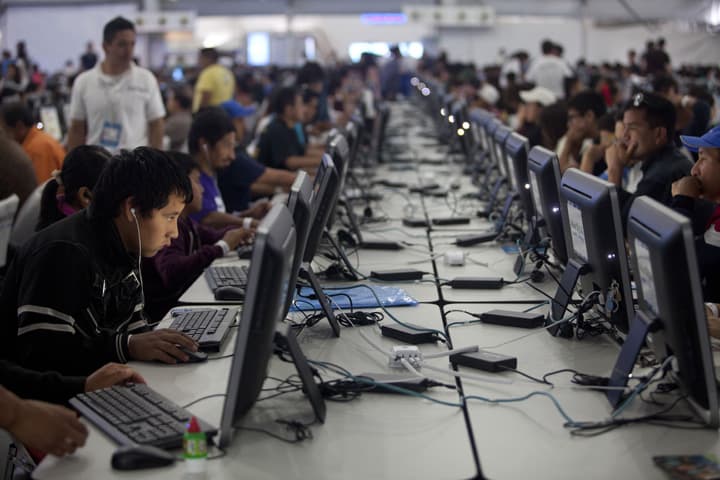Advertisement
Global Internet Access For The Next Four Billion
ResumeThe Internet and the world’s poor. Billions still have no access to the Web –though it’s become key to prosperity. So what now?

In many lives, the Internet more and more feels essential in terms of business, communication, education and more. But more than half the world is really not on it. A new White House report says broadband internet service has gone from being an optional amenity to a “core utility.” Like water, sewer and electricity, says the White House. But a new UN report says more than four billion people, more than half the planet, is not there. In poor countries, fewer than one in ten. Is this, should this be, a new human right? This hour On Point, the global digital divide, and its implications.
-- Tom Ashbrook
Guests
Indra de Lanerolle, visiting researcher at the University of Witwatersrand in Johannesburg, South Africa. Director of the Network Society Project. (@indradl)
Katy Pearce, assistant professor in the department of communication at the University of Washington. (@katypearce)
From Tom’s Reading List
UN Broadband Commission: The State of Broadband 2015 — "The digital divide is proving stubbornly persistent in terms of access to broadband Internet, including the challenge of extending last-mile access to infrastructure to remote and rural communities."
Quartz: Why connecting the billions of people who are offline requires more than just cables (or even drones) -- "Connecting everyone in the world to the internet requires more than just cables, lasers, and drones. Though infrastructure is important, it’s equally important to help the 4.2 billion people who are currently offline understand the web’s value—something that’s hard to do if there isn’t much in their native language."
Journal of Communication: Internet Use and Democratic Demand — "Just as there is extensive evidence that mass media use is associated with citizen attitudes about democracy, the scant research available suggests that Internet use may be associated with citizen attitudes as well. Indeed, if greater Internet penetration and use promotes citizen demand for democracy, this relationship may be as yet another theoretical mechanism by which Internet penetration promotes and strengthens democratization through 'bottom-up' processes."
This program aired on September 24, 2015.